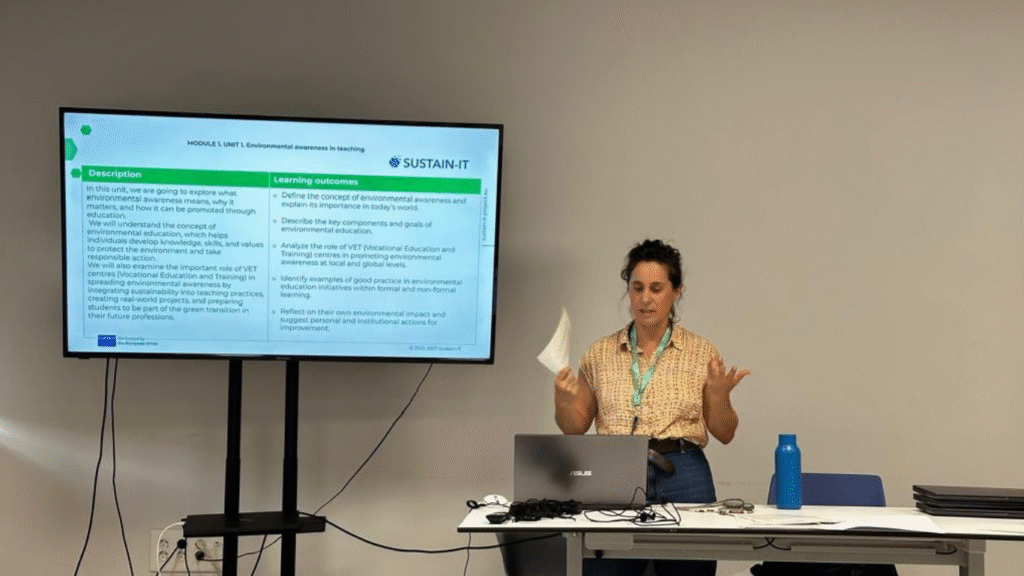
The SUSTAIN-IT Erasmus+ VET Capacity Building Project partners successfully concluded a one-week expert training in Bilbao, Spain, hosted by the project coordinator, Politeknika Txorierri. The programme brought together international partners from Europe: Apro Formazione, Politeknika and Asociación Mundus — and from Africa: APODISSI (Namibia), Harare Institute of Public Health (Zimbabwe), Salesians of Don Bosco (Rwanda), and Simukai Child Protection Programme (Zimbabwe). The training aimed to exchange knowledge and explore innovative teaching methodologies.
Throughout the week, three contextual sessions were conducted, all centered on environmental education in a challenge-based setting. The first session, led by Prof. Amaia Lizaso, provided an in-depth theoretical exploration of environmental awareness in teaching, including the use of digital tools for implementing challenge-based learning. The session concluded with a practical exercise at Politeknika’s workshop, where participants used spaghetti sticks, tape, and a marshmallow to construct the strongest and tallest tower within 30 minutes. The activity emphasized the value of creativity, teamwork, and problem-solving under pressure—skills vital in both classrooms and real-world contexts.
Recognising that understanding nature is vital for addressing human-induced environmental challenges such as hazards, pollution, and waste, the team visited the Urdaibai Biosphere Reserve. The experience offered meaningful insights into valuing natural environments and encouraged participants to engage in environmental protection initiatives that promote sustainable habits and behaviours.
Alessia Riccardi from Apro Formazione and Silvia Ganassi from Asociación Mundus facilitated interactive sessions on social entrepreneurship and inclusion in education, featuring activities on social business case development. Participants also enjoyed a guided tour of Bilbao’s Old Town and a gastronomic experience, “Pintxos: Sparking Ideas for Classroom Activities in Namibia, Rwanda, and Zimbabwe.” Francesco Bruno further enriched the programme by introducing the EntreComp Framework, a European Commission initiative that provides a comprehensive model for developing entrepreneurial mindsets and competencies.
The week concluded with a visit to a VET agricultural school, focusing on the conceptual frameworks and values of inclusive teaching in environmental education. The training established a strong foundation for continued collaboration among European and African partners, ensuring that the SUSTAIN-IT Project continues to strengthen vocational training and environmental education across both continents.